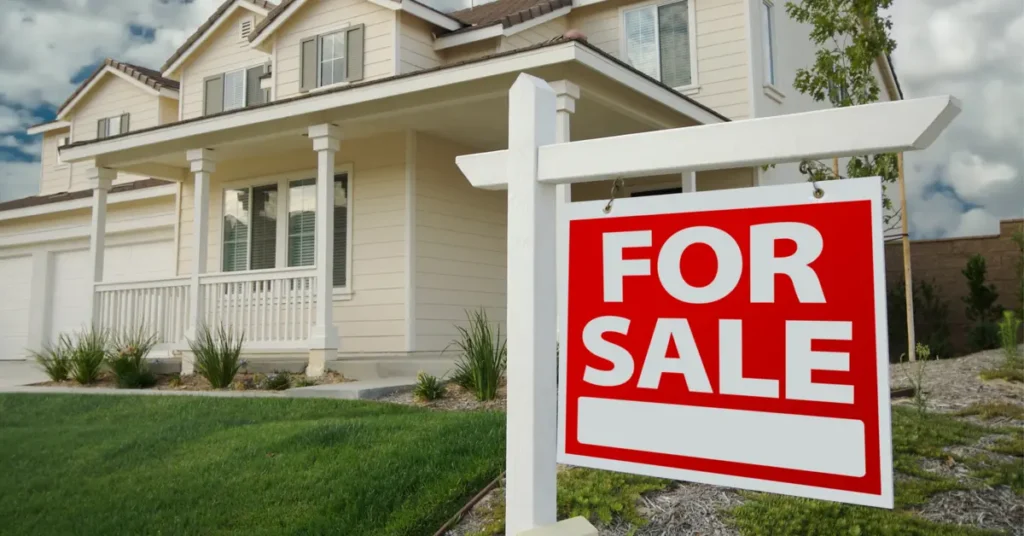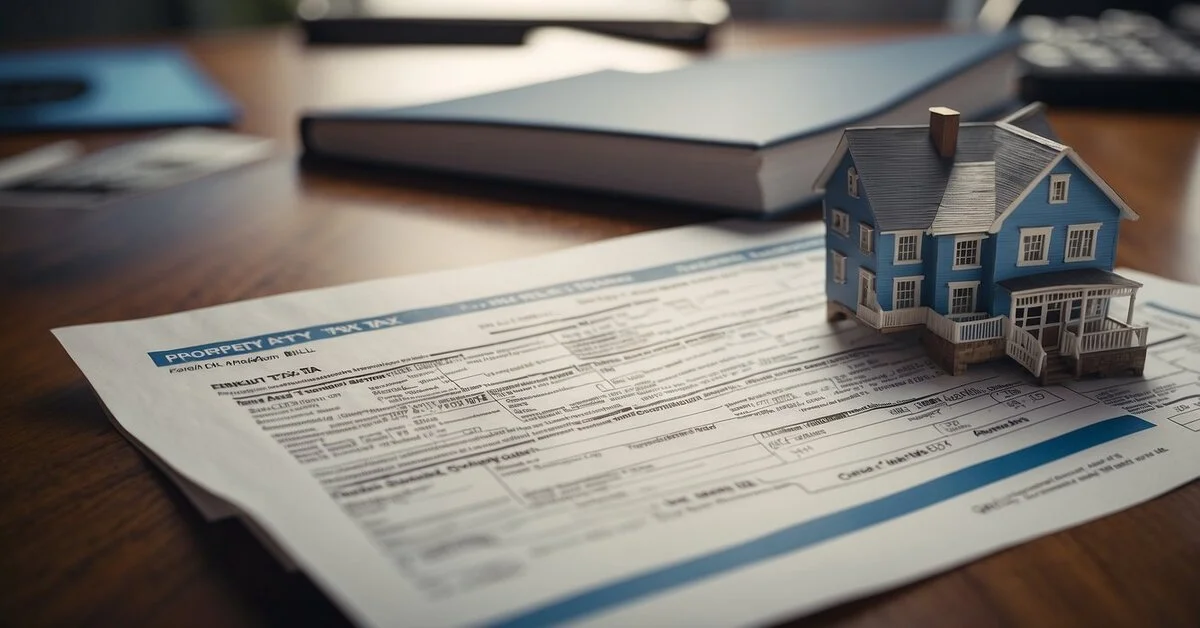In owner financing deals, where the seller finances the purchase for the buyer, a common query is who pays property taxes? This crucial detail often depends on who holds the title. Generally, if the buyer has the title, they cover the property taxes. In contrast, the seller might be responsible if they retain the title until all payments are made. Clarifying this in the financing agreement is essential for both parties to avoid surprises.
Who Pays Property Taxes on Owner Financing – The Basics
When discussing who pays property taxes on owner financing, it’s essential to grasp the core concepts behind the process. This framework allows buyers to bypass traditional mortgage routes.
Understanding Owner Financing
Owner financing occurs when the seller of a property provides the buyer with a loan to purchase the home. Instead of a bank or traditional lender stepping in, the seller becomes the financier. In this agreement, I, as the buyer, would sign a promissory note to the seller detailing the loan amount, interest rate, repayment schedule, and other terms. The promissory note essentially replaces the traditional mortgage and formalizes the seller financing terms.
This financing contract might include alternative forms such as a land contract, where I would pay installments directly to the seller. However, the title transfer only occurs once the full price is paid, making the investment secure for both parties involved.
Comparing Traditional and Seller Financing
Seller financing differs from obtaining a traditional mortgage where banks or mortgage companies lend money for a home purchase. With a traditional mortgage, I would go through a more stringent underwriting process but potentially secure lower interest rates. Interest rates in owner financing tend to be higher as they compensate the seller for the added risk of providing the loan.
Furthermore, traditional mortgages often involve large financial institutions with extensive resources to vet and approve loans. With seller financing, the agreement is directly between me and the seller, making the transaction more personal and sometimes more flexible. The seller’s investment in the property translates into a loan to me, which may allow for more negotiable terms, such as down payment or repayment schedule.
The Role of Parties Involved

When delving into who pays property taxes on owner financing, understanding the responsibilities of each party is crucial. It’s not just about monthly payments—there are legal and financial obligations that both the buyer and seller must adhere to.
Responsibilities of the Buyer and Seller
Buyer:
- Equitable Title: Upon entering an owner financing agreement, I acquire equitable title, which gives me the right to obtain full ownership after meeting all financial obligations.
- Property Taxes: It’s generally my duty to pay the property taxes, as I’m the one benefiting from inhabiting the property.
Seller:
- Deed of Trust: The seller retains the legal title and may place a deed of trust on the property to secure the payment terms.
- Risk Management: Should I default, the seller is typically protected by the terms of the agreement, which may include a due-on-sale clause or other provisions for recourse in the case of non-payment.
Legal Implications and Documentation
In an owner financing arrangement, it’s imperative that both the homebuyer and the seller understand the legal implications and have a solid written agreement in place, ideally drafted with the help of a real estate attorney. The contract should outline all responsibilities regarding default risk, property taxes, insurance, and maintenance, amongst others.
- Written Agreement: This agreement is crucial, as it details both party’s responsibilities and the recourse actions in case of buyer default.
- Default: Specific clauses related to default should be clear, ensuring both parties are aware of the steps to be taken if the buyer fails to make payments.
By being fully informed of our roles and the potential legal implications, both the buyer and seller can participate in an owner financing agreement with confidence and clarity.
Financial Considerations in Owner Financing

When it comes to owner financing, a critical question I often explore is who pays property taxes on owner financing. However, it’s also vital to navigate the financial landscape which includes setting appropriate interest rates, arranging down payments, and understanding the implications of balloon payments and foreclosure.
Setting Interest Rates and Down Payments
Interest rates in owner financing can be higher than traditional bank loans, as they represent the seller’s risk. As the seller, I might opt for a higher interest rate to compensate for this increased risk. The down payment is negotiable but usually, a higher down payment secures the deal and diminishes the default risk. A typical scenario might look like this:
- Down Payment: 20% of the loan amount
- Interest Rate: 6-10%, depending on the buyer’s creditworthiness
An amortization schedule is then drafted, detailing the monthly payments and how they’re split between interest and principal over the loan term.
Dealing with Balloon Payments and Foreclosure
A balloon payment is a large, lump-sum payment due at the end of a balloon loan. Including a balloon payment allows for smaller monthly installments, but buyers must be ready to settle this or refinance as the date approaches. If I’m the seller, I need to be clear about the balloon payment terms to avoid surprising the buyer:
- Balloon Payment Due: After 5 years
- Monthly Payment: $1,500 (until the balloon payment is due)
In the unfortunate event of a foreclosure, the foreclosure process can be complex and lengthy. As a seller, I’m potentially at risk of taking back a property through foreclosure if the buyer fails to make the agreed upon payments. This outcome involves additional costs and potentially loss of income during the reclaiming period, so it’s a risk to be considered seriously.
Handling Property Taxes in Owner Financing

When considering owner financing options, I always find it crucial to understand who pays property taxes, as this can impact both parties involved. Let’s take a closer look at how these responsibilities are divided and what tax benefits might come into play.
Payment Responsibilities
In an owner-financed agreement, it’s typically outlined that the buyer assumes the responsibility for property taxes. However, this can vary based on the terms set forth in the contract. Since the buyer often takes on the role similar to that of a traditional homeowner, they generally handle tax and insurance payments, just as they would with a mortgage from a bank. It’s important for both parties to agree on who will make these payments and to ensure this agreement is legally documented, potentially with the aid of a tax attorney.
Tax Benefits
For the seller, owner financing can lead to specific tax benefits. One notable aspect is how capital gains are handled; instead of paying taxes on the full gains in one lump sum, they might only owe taxes on the principal received annually. This could potentially reduce the tax burden and should be carefully calculated with the help of a tax accountant. For the buyer, tax benefits include the potential to deduct property taxes paid on their Schedule B when filing their taxes, usually providing some financial relief each year.
Both parties should be fully aware of their responsibilities and benefits when it comes to property taxes in an owner-financed agreement. As I ponder these arrangements, I remind myself that clear communication and professional advice can go a long way in avoiding future complications.
Frequently Asked Questions
Who is responsible for paying the property taxes in a seller-financed real estate transaction?
Typically, the buyer is responsible for paying the property taxes on a property with owner financing. The agreement often includes a clause that dictates how these taxes are paid, either directly to the taxing authority or to the seller who then pays the taxing authority.
How does owner financing impact the tax responsibilities for the seller and buyer?
Owner financing changes the tax dynamic because the seller, in effect, becomes the lender. With owner financing, the buyer usually pays the property taxes directly, but the exact responsibilities are determined by the terms explicitly stated in the financing contract.
What happens if the buyer defaults on an owner-financed property agreement?
If a buyer defaults, the seller can foreclose on the property. However, until the property is legally reclaimed, the buyer remains responsible for property taxes. If taxes aren’t paid, the seller may pay them to protect their interest and then include these costs in the foreclosure process.
Are there required minimum interest rates when setting up an owner financing deal?
Owner-financed transactions must typically adhere to Applicable Federal Rates (AFR) set by the IRS to avoid additional taxes. Charging interest below these rates can incur tax consequences for the seller.
What are some potential drawbacks for sellers offering owner financing?
Sellers offering owner financing may face a few potential drawbacks, like assuming the risk of buyer default and the loss of liquidity, as they do not receive the full sale price upfront. They may also need to manage the property and tax payments if the buyer fails to meet their payment obligations.
I hope you found some inspiration or useful tips for the question ’who pays property taxes on owner financing?’! If so, I’d love to hear your thoughts and ideas in the comments below! And if you’re looking for more insightful content, don’t hesitate to explore our other articles:
- Food Truck Financing: Key Steps To Get On The Road
- Strategic Finance: Business Growth And Decision-Making
- Rolex Financing Simplified: Your Guide To Owning Luxury
- Beginners Guide for Budget Binder Ideas to Organize Your Finances
Your comments help us create better content for you. Happy reading!






